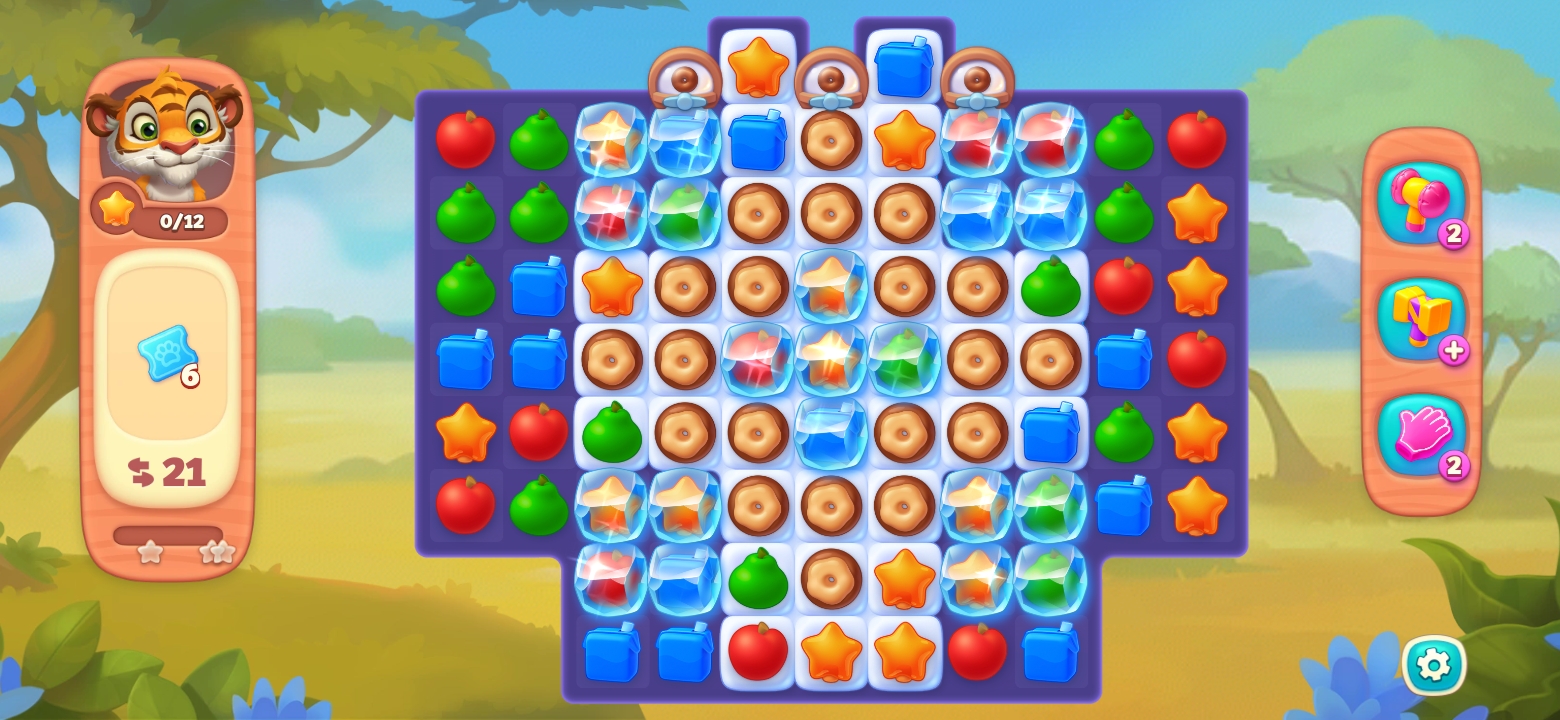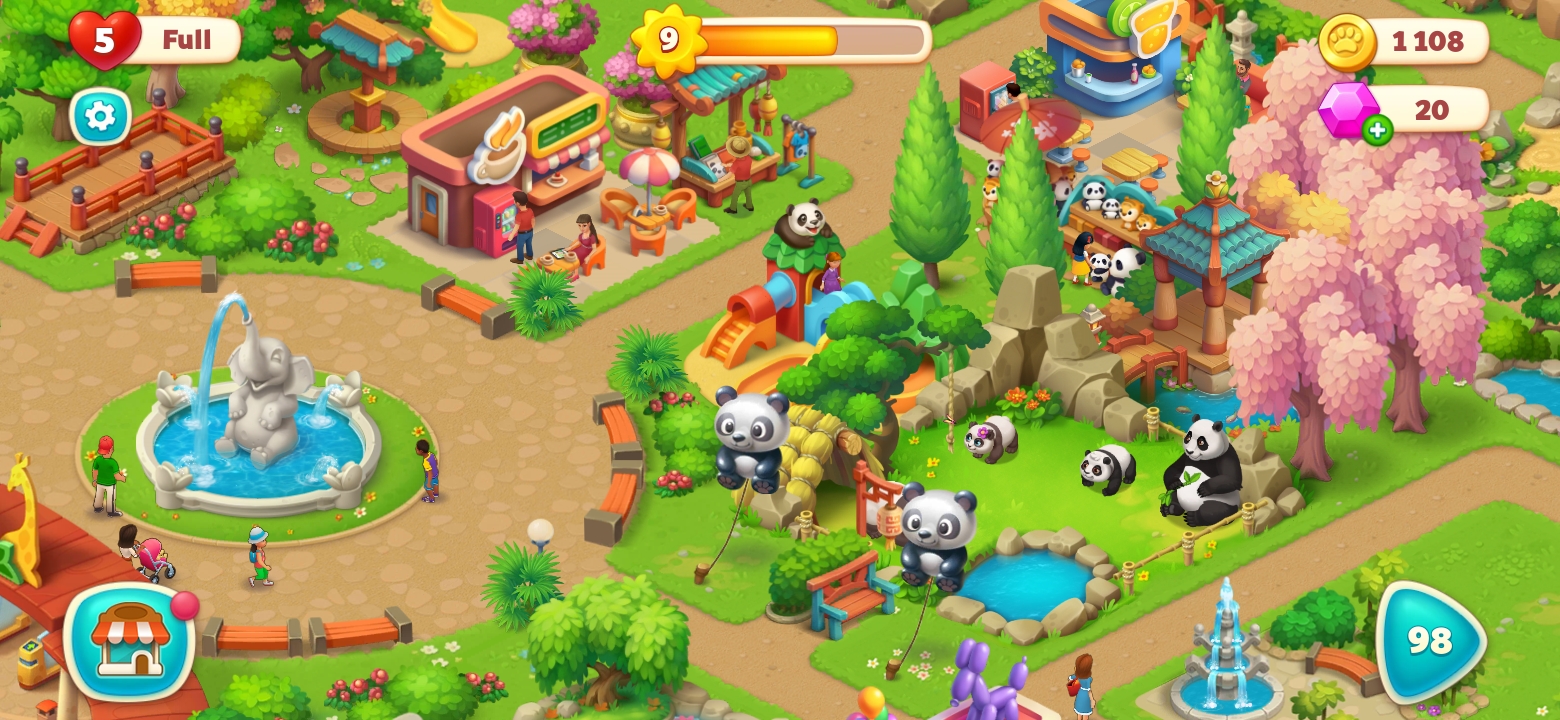I have spent a few hours playing Wildscapes and here are some thoughts about the game and a new direction Playrix is taking with it.
Wildscapes
After Homescapes came out in 2016, Playrix has kept silence for two years. There have been no new releases until the middle of this August. But the company hasn’t been idle. It has become bigger. Much bigger. Its monthly sales have grown by more than seven times. It is no longer just a studio from Eastern Europe that got lucky. Today, Playrix is one of the world’s top grossing companies with its mobile revenue exceeding that of either Netflix or Tinder. That calls for some attention, right?
Last week Playrix rolled out a new installment in its match-3 series responsible for most of the company’s earnings. The new game is called Wildscapes. It’s the studio’s first game in the franchise to discard the narrative meta-gameplay that was Playrix’s own invention within the genre, the secret sauce of their games. When they made Gardenscapes just three years ago, integrating a story into a casual free-to-play game looked like a real innovation. Their next game Homescapes further proved the viability of the idea. The title became a hit and a role model for other developers.
Wildscapes is different. There is no story. Rich narrative with memorable characters, funny situations and a never-ending soaplike timeline is gone. Its place is taken by simple and even ascetic building gameplay where you get golden coins from match-3 levels and spend them on non-interactive animals and decorations. “Wildscapes gives more freedom to players. It’s like sandbox that players can develop in any way they want,” the developers said.
Building meta in Wildscapes
That sounds strange coming from the studio that made a rich narrative in match-3 a modern industry standard. And for the loyal audience of the previous Playrix titles it’s outright disappointing. But it feels justified in a situation when all casual games companies are copying your ideas and concepts. Viveyard Valley by Jam City, Matchington Mansion by Firecraft Studios, Lily’s Garden by Tactile Games, to name just a few games that try to recreate Playrix’s success.
It is the abundance of high quality clones that look and feel identical that could have prompted the company to try a different approach so that their new game stands out. But it came at a price. Experimenting with meta-gameplay had a negative impact on D1 retention of Wildscapes. It’s 38%, which is still high, just not as high as the one Homescapes had two years ago at 68%.
There is a popular opinion that these days many companies discontinue the development of games with D1 retention under 40% during soft launch. Funny thing, only 15% games on the market can boast D1 retention rate above 35%, according to GameAnalytics. However, leading companies like Playrix, King or Zynga might not be content with anything lower than 40%. So why is Wildscapes still alive? Was there maybe some other reason for the company to change their stance on meta-gameplay?
The rationale for this becomes clear after you spend several hours with the game. It looks and sounds like it was made with the Chinese market in mind. This doesn’t make it an Asian game (it still feels like a high-end Western product), but it is fairly obvious who its intended target audience is. And it’s very refreshing. We got used to the situation when the majority of developers — if they are not from Asia-Pacific region — are clearly trying to cater to the North American market.
Playrix might count on Wildscapes to enhance its presence in the Middle Kingdom where your typical European story about a butler, inheritance and an old house just doesn’t work like it does in the United States. The studio’s sales in China are very impressive for a non-local company, but they are pretty mediocre in comparison with the domestic top market players. So it’s only natural for Playrix to see there an opportunity to beef up its presence in the saturated Asian market.
Undeniable cuteness of Wildescapes
To really unlock a new market, you have to play by its rules. If Wildscapes is to be a success in China, the narrative might have to go. Top Chinese match-3 games don’t have stories, they are about animals and have very cute visuals. This absolutely defines Wildscapes, its mascot a red panda and its core-gameplay music having dizi (national flute) elements.
You want to get something, you pay a price. Moderate performance in the West might potentially become the price Playrix would have to pay to truly hit it off with the Chinese market.



